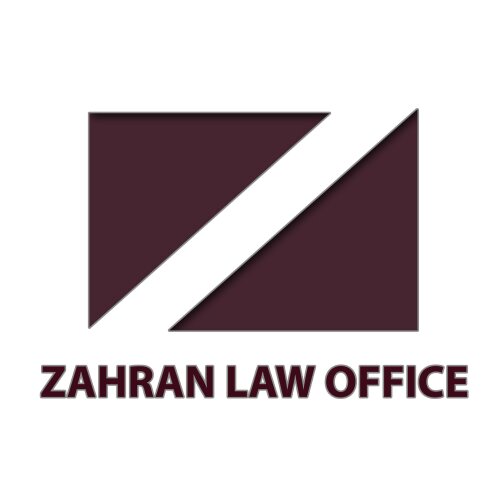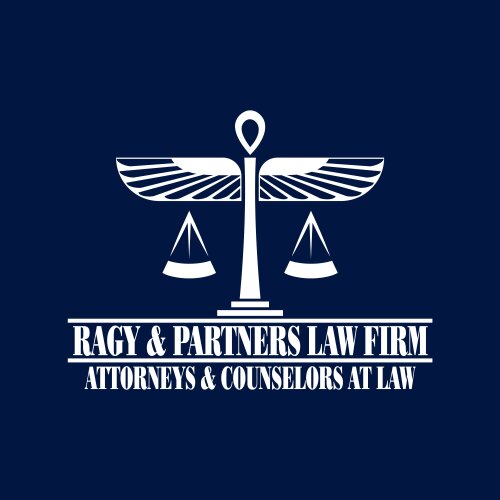Best Bankruptcy & Debt Lawyers in Egypt
Share your needs with us, get contacted by law firms.
Free. Takes 2 min.
Or refine your search by selecting a city:
List of the best lawyers in Egypt
About Bankruptcy & Debt Law in Egypt
Bankruptcy and debt law in Egypt is designed to address the financial distress of individuals and businesses, providing a structured approach for resolving insolvency and financial obligations. Introduced to cope with economic fluctuations and promote a healthy economic environment, these laws aim to balance the interests of debtors and creditors. The framework primarily revolves around restructuring agreements, liquidation processes, and legal stipulations for personal and organizational financial distress.
Why You May Need a Lawyer
Navigating bankruptcy and debt issues can be complex and requires an understanding of the legal intricacies involved. Here are some common situations where legal assistance might be necessary:
- Filing for bankruptcy protection to halt debt collection efforts.
- Negotiating with creditors for a debt restructuring plan.
- Assessing the eligibility and implications of declaring bankruptcy.
- Understanding and complying with legal requirements during the bankruptcy process.
- Disputing incorrect or fraudulent claims by creditors.
- Dealing with potential accusations of fraudulent activity related to debt.
Local Laws Overview
Here are key aspects of bankruptcy and debt laws in Egypt:
- Insolvency Code: Established to streamline bankruptcy procedures, it outlines steps for filing, asset liquidation, and protection for debtors against hostile creditor actions.
- Debt Restructuring: Offers mechanisms for restructuring debt through agreements with creditors, providing possibilities for businesses to return to solvency.
- Liquidation Proceedings: If a business or individual cannot be restructured, the law stipulates processes for liquidation, asset redistribution, and satisfaction of debts.
- Debtor Protection: Exercising formal procedures can protect debtors from aggressive collection and provide a path to financial rehabilitation.
Frequently Asked Questions
What is bankruptcy in Egypt?
Bankruptcy is a legal process initiated either by debtors or creditors, designed to handle cases of insolvency where debts exceed assets. It provides a controlled environment for debt resolution through either restructuring or liquidation.
Who can file for bankruptcy?
Both individuals and businesses can file for bankruptcy in Egypt. The eligibility and type of filing depend on the financial situation and necessity to liquidate or restructure debt.
How does bankruptcy affect credit records in Egypt?
Filing for bankruptcy will have a negative impact on your credit records, affecting your ability to secure loans or credits in the future. However, it might offer a new beginning by clearing overwhelming debts.
Can all debts be discharged through bankruptcy?
No, certain debts like child support, alimony, and some types of tax obligations cannot typically be discharged through bankruptcy proceedings.
How long does the bankruptcy process take?
The duration varies depending on the complexity of the case and the type of bankruptcy filed. It can range from several months to a few years.
What assets can I keep if I file for bankruptcy?
Some assets may be exempt based on their value and necessity, such as essential household items or tools for professional work, but specifics can vary.
Can I stop creditor harassment through bankruptcy?
Yes, filing for bankruptcy initiates an automatic stay which legally prevents creditors from continuing collection activities.
How do I select a bankruptcy lawyer?
Choose a lawyer with specific experience in bankruptcy and debt law, a good reputation, and whom you feel comfortable with regarding transparency and communication.
What is the role of a trustee in bankruptcy?
A trustee is appointed to oversee the bankruptcy process, ensuring that asset liquidation or debt restructuring complies with legal requirements and that creditors are treated fairly.
Are there alternatives to bankruptcy for resolving debt issues?
Yes, alternatives include debt consolidation, negotiation for payment plans, or informal agreements with creditors. Legal advice can be invaluable to determine the best route.
Additional Resources
For additional assistance, consider exploring these resources:
- Ministry of Justice: Provides general guidance on legal procedures.
- Central Bank of Egypt: Offers information related to financial practices and credit records.
- Legal Aid Offices: Available for those unable to afford private legal counsel.
- Egyptian Bar Association: Can assist in finding qualified lawyers specialized in bankruptcy and debt law.
Next Steps
If you find yourself in need of legal assistance regarding bankruptcy or debt issues, consider taking the following steps:
- Assess your financial situation thoroughly and gather relevant documentation.
- Consult with a qualified bankruptcy lawyer to explore your options.
- Prepare questions and concerns to discuss during legal consultations.
- Engage in open discussions with creditors, facilitated by your legal advisor, to potentially reach out-of-court settlements.
- Ensure you understand all implications before proceeding with legal actions.
Lawzana helps you find the best lawyers and law firms in Egypt through a curated and pre-screened list of qualified legal professionals. Our platform offers rankings and detailed profiles of attorneys and law firms, allowing you to compare based on practice areas, including Bankruptcy & Debt, experience, and client feedback.
Each profile includes a description of the firm's areas of practice, client reviews, team members and partners, year of establishment, spoken languages, office locations, contact information, social media presence, and any published articles or resources. Most firms on our platform speak English and are experienced in both local and international legal matters.
Get a quote from top-rated law firms in Egypt — quickly, securely, and without unnecessary hassle.
Disclaimer:
The information provided on this page is for general informational purposes only and does not constitute legal advice. While we strive to ensure the accuracy and relevance of the content, legal information may change over time, and interpretations of the law can vary. You should always consult with a qualified legal professional for advice specific to your situation.
We disclaim all liability for actions taken or not taken based on the content of this page. If you believe any information is incorrect or outdated, please contact us, and we will review and update it where appropriate.
Browse bankruptcy & debt law firms by service in Egypt
Egypt Attorneys in related practice areas.
Browse bankruptcy & debt law firms by city in Egypt
Refine your search by selecting a city.










